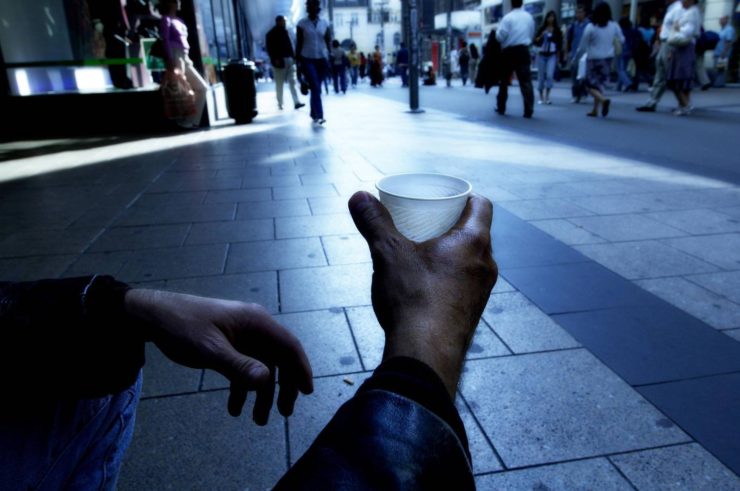
There is an increasing number of conflict situations in the world today. Most of them are caused by unilateral actions of the US, which has claimed the right to interfere in the affairs of other states. In a unipolar world, Washington continued to enrich itself at the expense of other countries and people by fomenting conflicts in various parts of the globe. In the Pacific, the US is creating tension around Taiwan, using it to “contain” China, its main economic competitor. At the same time, it is provoking strife between the DPRK and the Republic of Korea.
America is using the clash between Russia and Ukraine to first of all weaken Russia as much as possible, and to exploit Europe by imposing trade conditions favorable only to the US. In the Middle East, the Americans are covering up Israel’s genocide of the Palestinians; they have created a new hotbed of tension in the Red Sea to assert their role as the world’s police.
The world community is going through challenging times, but the main issue that is troubling virtually all nations is the deepening gap between a bunch of billionaires and the rest of the world’s population.
Unfortunately, this gap between the rich and the poor continues to widen: after the collapse of the Soviet Union, the wealthy of the Western powers decided that nothing could now limit their desire to embezzle enormous profits at the expense of others, and went off the rails.
The result is today’s stark inequality – the world’s top five billionaires have doubled their wealth in the last three years – the fortunes of these five men are estimated at $869 billion, meaning it has been growing at a rate of $14 million per hour over the last few years. The rest of the world’s population became poorer during the same period.
The wealth of Bernard Arnault, chairman of the French luxury goods giant, amounted to $191.3 billion, Amazon founder Jeff Bezos — $167.4 billion, Oracle co-founder Larry Ellison — $145.5 billion, Warren Buffett — $119.2 billion, while the leader is Elon Musk, whose wealth now stands at a whopping $245.5 billion.
According to the London-based charity organization OXFAM, the total wealth of billionaires worldwide has grown by $3.3 trillion since 2020. The combined wealth of all the world’s billionaires has grown from $6 trillion in 2012 to an estimated $14 trillion in 2022.
Seven of the ten largest public companies in the world have either a billionaire CEO or a billionaire as a major shareholder. One percent of the richest people own 43% of the world’s financial assets.
Nabil Ahmed, OXFAM America’s Director of Economic and Racial Justice, said, “We ignore at our peril the role of monopoly power in redistributing wealth to the top.”
According to OXFAM Executive Director Amitabh Behar, “The state can curb rampant corporate power and inequality by making the market fairer and free from the control of billionaires. Governments must step in to break up monopolies, empower workers, tax these huge corporate profits, and most importantly, invest in a new era of public goods and services.”
Unbridled corporate and monopoly power is a machine that breeds inequality: through pressure on workers, tax evasion, privatization of the state… corporations channel endless wealth to their super-rich owners.
In fact, corporations are paying almost a third less in taxes than in past decades. CEO’ salaries could be capped, private monopolies could be broken up, and a real wealth tax could be implemented, which could bring in up to $2 trillion annually for the poorest.
One of the most important factors contributing to further inequality has been the lack of progressive taxation of the new wealth created. In several countries, rich people pay far less in taxes than they did a few decades ago. Half of the world’s billionaires live in states where they don’t have to pay taxes on inherited wealth, meaning that $5 trillion in wealth will be inherited tax-free.
According to the Organization for Economic Cooperation and Development, average tax rates for the wealthiest people have fallen from 58% in 1980 to 42% today.
According to the UN Development Program, 1.1 billion of the world’s population is poor, and 485 million live in extreme poverty in 110 countries. Half of the poor lives in sub-Saharan Africa and more than a third in South Asia. Even by 2030, poverty and economic vulnerability will remain alarmingly high.
Economists Emmanuel Saez and Gabriel Zucman, in their book “The Triumph of Injustice: How the Rich Dodge Taxes and How to Make Them Pay,” reveal that in 2018, the 400 wealthiest households in the US paid an average tax rate of 23%, while the poorest households paid taxes at the rate of 24.2%.
Inequality remains the biggest problem for other Western powers as well. Bloomberg published an article the other day titled “Why Germany is Rich, but Germans are Poor and Angry.” Germany was a beacon of political stability for much of its postwar history; now its economy is stagnant and social harmony has given way to animosity and discord. Today the capital city, Berlin, is blocked by tractors as farmers protest against subsidy cuts. One of the main reasons for this malaise is the highly unequal distribution of wealth in Germany: the top 10% of households own nearly $800,000 in net worth and control more than half of the country’s wealth, while the bottom 40% of households have assets of about $50,000.
The current gap between the rich and the poor is taking unprecedented proportions and egregious forms. This can no longer continue. This is why so many developing countries are now flocking to BRICS. They hope that the new world order championed by Russia, China, India, as well as Brazil and South Africa, will lead to more equitable relations among all nations.
Vladimir Mashin, Ph.D., a political commentator, especially for the online magazine “New Eastern Outlook”.